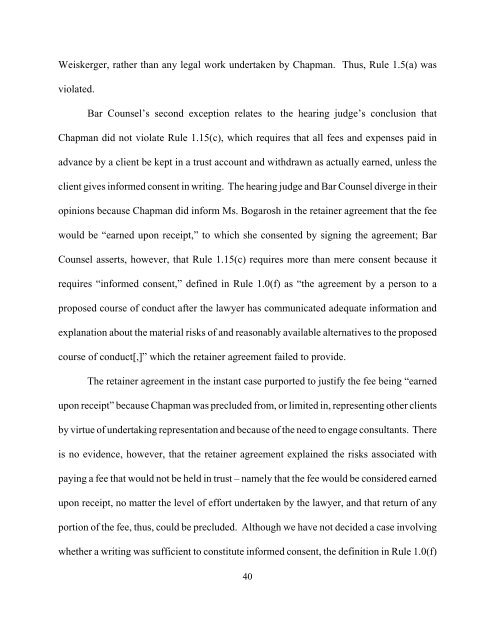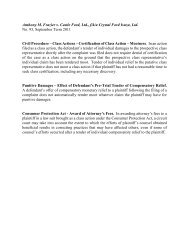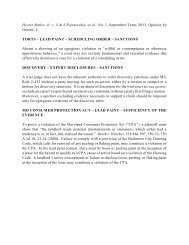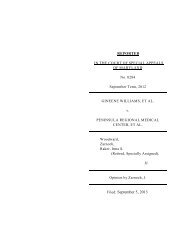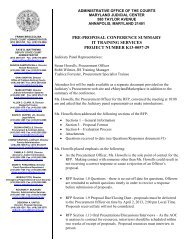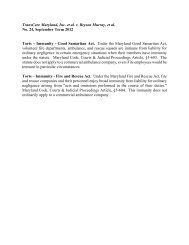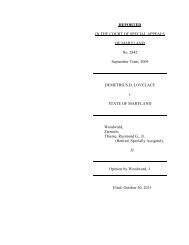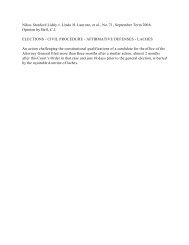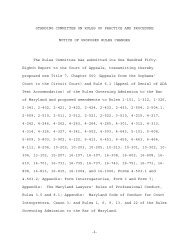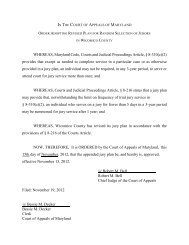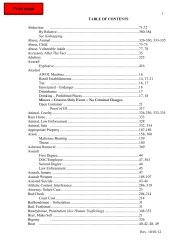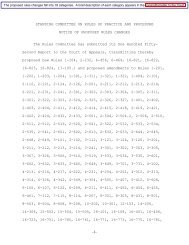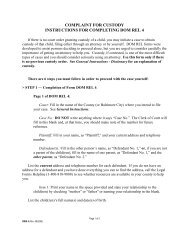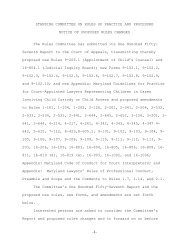44ag/11 - Maryland Courts
44ag/11 - Maryland Courts
44ag/11 - Maryland Courts
Create successful ePaper yourself
Turn your PDF publications into a flip-book with our unique Google optimized e-Paper software.
Weiskerger, rather than any legal work undertaken by Chapman. Thus, Rule 1.5(a) was<br />
violated.<br />
Bar Counsel’s second exception relates to the hearing judge’s conclusion that<br />
Chapman did not violate Rule 1.15(c), which requires that all fees and expenses paid in<br />
advance by a client be kept in a trust account and withdrawn as actually earned, unless the<br />
client gives informed consent in writing. The hearing judge and Bar Counsel diverge in their<br />
opinions because Chapman did inform Ms. Bogarosh in the retainer agreement that the fee<br />
would be “earned upon receipt,” to which she consented by signing the agreement; Bar<br />
Counsel asserts, however, that Rule 1.15(c) requires more than mere consent because it<br />
requires “informed consent,” defined in Rule 1.0(f) as “the agreement by a person to a<br />
proposed course of conduct after the lawyer has communicated adequate information and<br />
explanation about the material risks of and reasonably available alternatives to the proposed<br />
course of conduct[,]” which the retainer agreement failed to provide.<br />
The retainer agreement in the instant case purported to justify the fee being “earned<br />
upon receipt” because Chapman was precluded from, or limited in, representing other clients<br />
by virtue of undertaking representation and because of the need to engage consultants. There<br />
is no evidence, however, that the retainer agreement explained the risks associated with<br />
paying a fee that would not be held in trust – namely that the fee would be considered earned<br />
upon receipt, no matter the level of effort undertaken by the lawyer, and that return of any<br />
portion of the fee, thus, could be precluded. Although we have not decided a case involving<br />
whether a writing was sufficient to constitute informed consent, the definition in Rule 1.0(f)<br />
40


